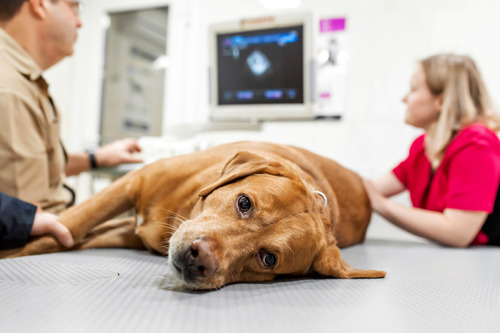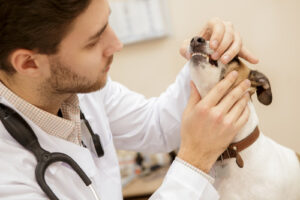Noticing sudden lumps on your dog under their skin can be alarming. These lumps could appear anywhere on the body and might be a cause of concern for any pet owner. While lumps can be harmless, they may also signal underlying health issues that need professional attention. This blog aims to guide you through understanding what these lumps could mean, how veterinarians diagnose them, and why it’s important to seek advice from experts like the team at Park Veterinary Hospital in Fort Lauderdale, FL.
Identifying Sudden Lumps
When you find a lump on your dog, the first step is to monitor its characteristics. These lumps, which can appear suddenly, might be soft or hard, movable or fixed, and could vary in size. Commonly, these are either cysts, fatty growths known as lipomas, or more rarely, could be indicative of something more serious like a tumor.
Common Types of Lumps
- Cysts: These are typically non-cancerous, filled with fluid or other materials.
- Lipomas: Generally benign, these are soft, fatty lumps.
- Abscesses: Caused by infection, these are usually painful and may require antibiotic treatment.
- Tumors: These can be benign or malignant and require immediate professional evaluation.
The Importance of Veterinary Assessment
If you discover a lump under your dog’s skin, it is crucial to have it checked by a veterinarian. Park Veterinary Hospital provides comprehensive evaluations using various diagnostic tools to determine the nature of the lump.
Diagnostic Tools Used
The first step is a physical examination where your veterinarian will assess the lump’s size, shape, and texture. They may perform a biopsy or fine needle aspiration to collect samples for further analysis. Your vet may also recommend an ultrasound or X-rays for your pet to help understand the lump’s impact on surrounding tissues.
When to Contact Your Veterinarian
It’s advisable to contact your vet as soon as you notice any new lumps on your dog’s skin. Early detection and diagnosis can significantly influence the ease and success of treatment. If the lump changes in size, shape, or becomes painful, it should be examined immediately. Behavioral changes such as lethargy or decreased appetite can indicated underlying illness and should prompt immediate veterinary attention.
Treatment Options
Treatment will depend on the diagnosis. Non-cancerous lumps like cysts or lipomas might not need immediate treatment but will be monitored for changes. If a serious condition is diagnosed, treatment options may include surgery, medications, or other therapies.
Ensuring Your Pet’s Health and Safety
Finding sudden lumps on your dog can be a distressing experience, but understanding what steps to take can help you manage the situation effectively. Always seek professional advice from your veterinarian when you notice any new developments with your pet’s health. At Park Veterinary Hospital in Fort Lauderdale, FL, we are here to assist you with top-quality care and guidance. For concerns about lumps or any other health issues, call us at (954) 561-8387 or request an appointment online to ensure your dog receives the best possible care.







